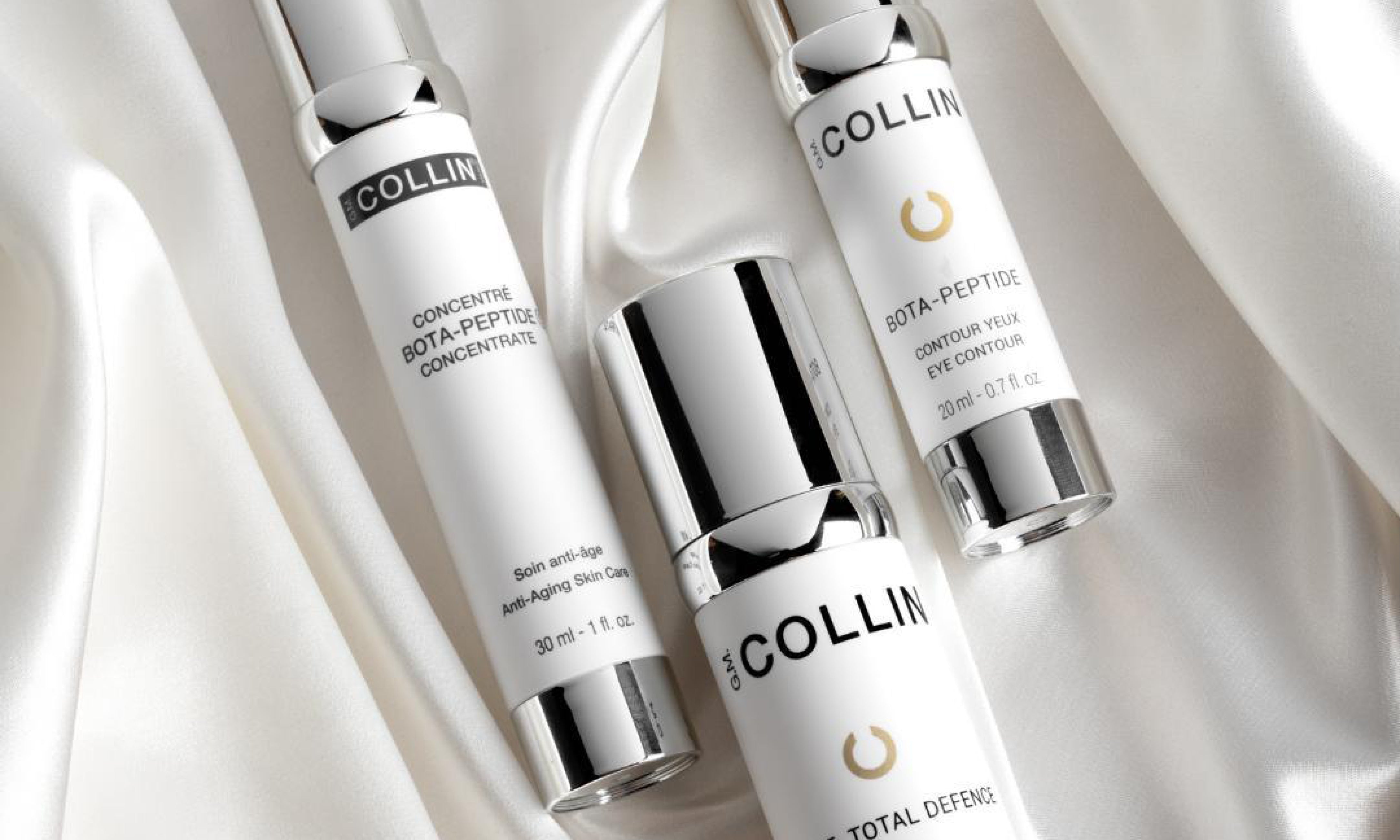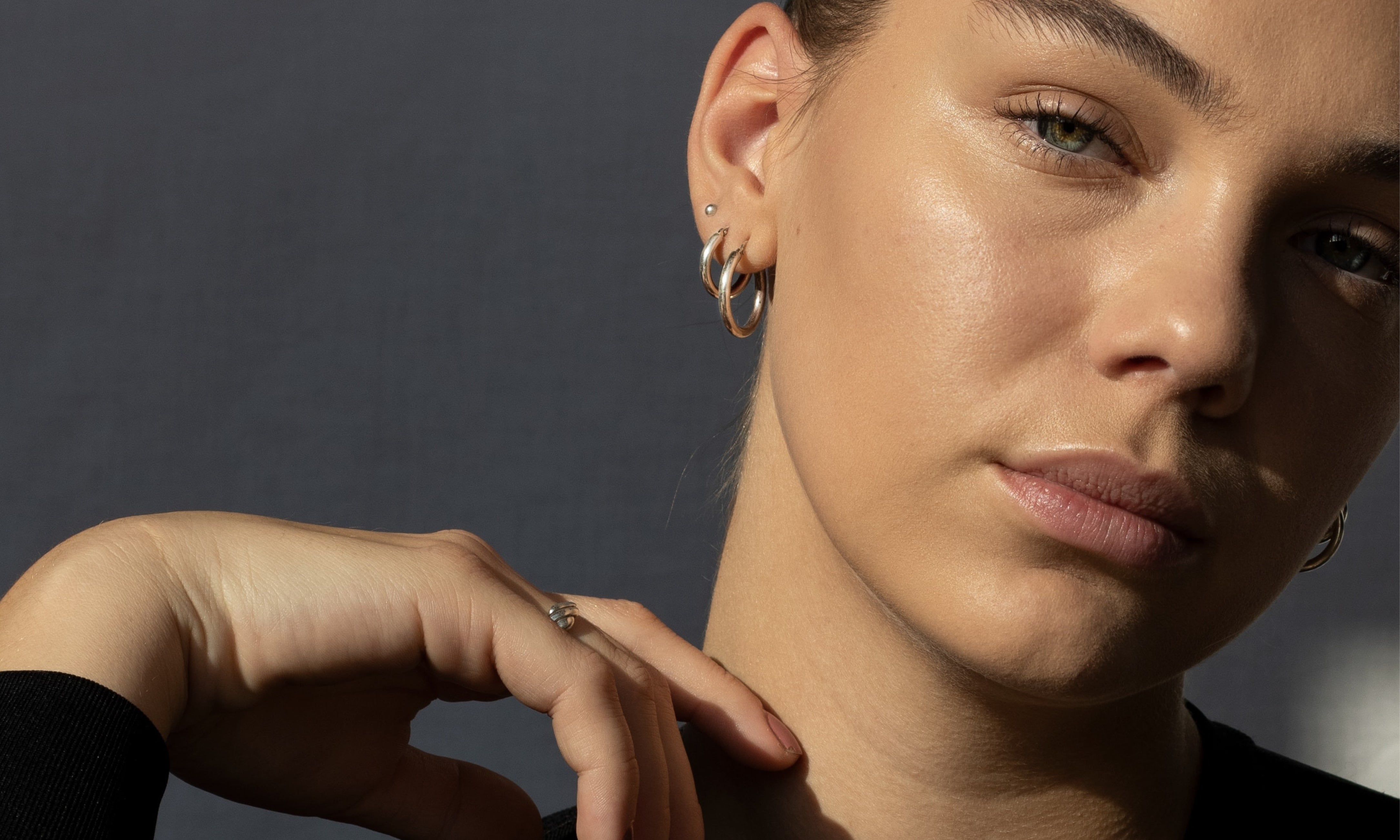
UNDERSTANDING PEPTIDES
Peptides (also called polypeptides) are one of the most talked-about ingredients in skincare. It can almost feel like the word is thrown around everywhere and for whatever reason. It sounds nice and seems important. So, what in the world are peptides, actually?
In fact, they aren’t that difficult to understand. First of all, keeping in mind that there is no single ingredient that will reverse all the signs of skin ageing––peptides are no exception. Yet, as they are naturally occurring in the skin, they’re also included in many skincare products to fulfill the lack of natural peptide production which decreases over time as we age.
So, here’s all you really need to know:
WHAT ARE PEPTIDES, EXACTLY?
Peptides are strings of amino acids, which act as the "building blocks" of proteins such as collagen, elastin, and keratin. These proteins form the foundation of your skin and are responsible for its texture, strength, and resilience. Unlike collagen (which is made by and inside the body), peptides can be absorbed directly into the skin where they can be used by the body.
WHAT DO PEPTIDES DO?
There are tons of different peptides in your body, each with a different role. Some of the general benefits peptides offer in skincare include:
- A strengthened skin barrier
As your skin’s natural line of defence, the skin barrier can be damaged from sun rays, poor health, over-exfoliation, as well as exposure to free radicals like cigarette smoke and other pollution. Peptides, however, build up a stronger barrier and can therefore improve the look of your overall glow by keeping it strong and healthy. And a healthy skin barrier means less inflammation, less redness, less dryness, and less breaking out.
- Reduces wrinkles
Because peptides contribute to the natural creation of collagen, it can help plump the skin and give it that firmer appearance. In turn, wrinkles and fine lines can become less visible. In addition to collagen, peptides also make up elastin fibres, which help fight against the loss of tautness.
- Reduces breakouts
Because some peptides are antimicrobial, they can contribute to killing the bacteria that cause acne.
WHERE CAN YOU FIND PEPTIDES?
Peptides can be consumed as they are found in many foods such as meats, fish, beans, soy, oats, and seeds. However, when applied topically to the skin, they are absorbed and can trigger skin cells to perform specific functions––such as building collagen and elastin––encouraging your skin to look and act younger. Many skincare products are made with peptides and many brands produce peptide-enhanced formulations.
FINAL TIPS
Peptides come in many forms. For them to work their magic, you’ll want to choose a product like a serum or a moisturizer that has prolonged contact with your skin (unlike a cleanser, for example).
Peptides work great with other ingredients such as vitamin C, antioxidants, and hyaluronic acids. Be careful when combining your products, as using a peptide with an alpha/beta hydroxy acid (AHA/BHA) or retinol can actually make the peptides work less efficiently.
Here are a few of our peptide-infused favourites:
GM COLLIN PARIS BOTA-PEPTIDE 5 CONCENTRATE $132
VIVIER SKIN PEPTIDE CR CRÈME $216
ENVIRON ANTIOXIDANT & PEPTIDE EYE GEL $74
PCA SKIN PEPTIDE LIP THERAPY $37
VIVIER SKIN C E PEPTIDES DAILY HEALTHY SKIN BUNDLE $330
Until next time,
The BSE Team
















Leave a comment
This site is protected by hCaptcha and the hCaptcha Privacy Policy and Terms of Service apply.